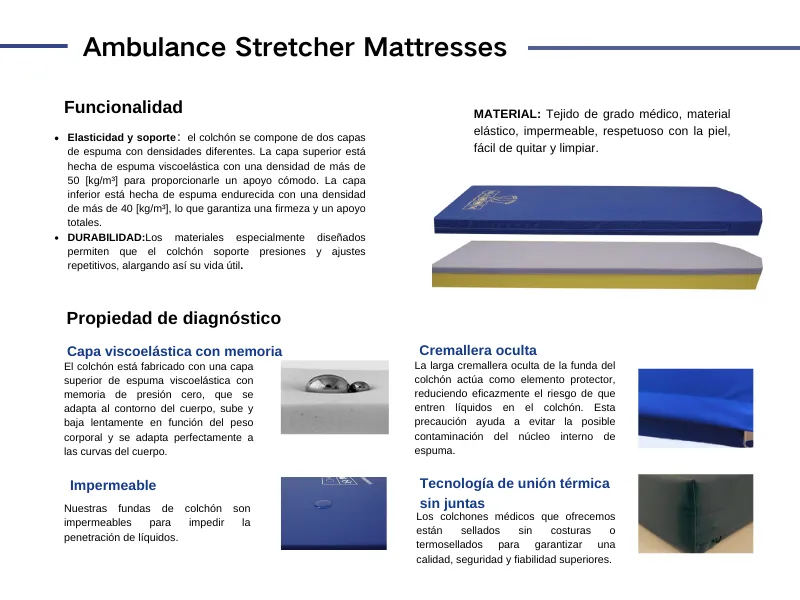Choosing the Right Mattress for Effective Bedsore Prevention and Comfort
Buying a Mattress for Bedsores Prevention A Comprehensive Guide
When it comes to preventing bedsores, or pressure ulcers, one of the most crucial elements to consider is the type of mattress you choose. Bedsores occur when there is continuous pressure on the skin, usually in individuals who are bedridden or have limited mobility. A mattress that provides the right support and comfort can significantly reduce the risk of developing these painful sores. In this article, we will explore the key features to look for when buying a mattress for bedsores prevention and offer tips on making the best choice.
Understanding Bedsores
Bedsores develop when blood flow is restricted to the skin—often in areas where bony prominences are in contact with a surface for extended periods. Common sites include the heels, tailbone, and back. Prevention is critical, particularly for individuals who are elderly, disabled, or recovering from surgery. Investing in a suitable mattress is a proactive step in ensuring comfort and minimizing the risk of skin breakdown.
Key Features to Consider
1. Support and Firmness The mattress should provide adequate support to keep the spine aligned and reduce pressure points. A medium-firm mattress is often recommended, as it balances support with comfort. However, the ideal firmness can vary based on individual preference and body weight. It’s essential to test different firmness levels before making a choice.
2. Pressure Relief Look for mattresses that are specifically designed to alleviate pressure. Memory foam mattresses, for instance, contour to the body and distribute weight evenly, which can help in reducing pressure on vulnerable areas. Alternatively, hybrid mattresses that combine layers of foam with a supportive innerspring system can also be beneficial.
3. Material Quality The materials used in the mattress can directly impact its durability and comfort. High-quality foam that retains its shape over time is preferable. Additionally, breathable materials are crucial to help regulate temperature and prevent moisture build-up, which can contribute to skin breakdown.
buy mattress for bedsore prevention

4. Adjustability Adjustable mattresses or beds can be particularly beneficial for individuals with limited mobility. Being able to modify the angle of the mattress can help relieve pressure on specific areas of the body and allow for easier repositioning, which is essential in preventing bedsores.
5. Anti-Microbial Properties Some mattresses come with anti-microbial treatments that help prevent the growth of bacteria and fungi. This feature is important, as it helps maintain a hygienic sleeping environment and reduces the risk of infections in existing sores.
Tips for Buying a Mattress
- Trial Period When purchasing a mattress, choose a brand that offers a trial period. This allows for testing the mattress at home and returning it if it does not meet comfort and support needs.
- Consult Healthcare Professionals If the mattress is for someone at high risk for bedsores, it is advisable to consult with healthcare providers. They can provide recommendations based on individual health conditions and risk factors.
- Budget Consideration While it's important to invest in a quality mattress for prevention, consider budgeting for additional protective layers, such as pressure-relieving overlays or specialized mattress covers.
- User Reviews Before making a purchase, read user reviews and testimonials. Experiences from other customers can provide valuable insights into the effectiveness and comfort of specific mattresses.
In conclusion, choosing the right mattress for bedsores prevention is a critical step towards ensuring comfort and health for those at risk. By focusing on factors such as support, pressure relief, material quality, and additional features, one can make an informed decision that promotes well-being and minimizes the chance of pressure ulcers. Remember, investing in a quality mattress is not just a purchase; it’s an investment in health and quality of life.
-
The Effect of Coconut Foam Mattress Breathability and Humidity Regulation on Improving Sleep QualityNewsJul.03,2025
-
How Wave Mattress Systems Improve Blood Circulation During ImmobilityNewsJul.03,2025
-
The Climate-Adaptive Sleep Revolution: Exploring the Benefits of Cooling Gel Memory Foam MattressesNewsJul.03,2025
-
Exploration of the Role of Coconut Foam Mattress in Preventing Bedsores in the ElderlyNewsJul.03,2025
-
Comparing Wave Mattress and Air Mattress: Which Is Better for Medical Use?NewsJul.03,2025
-
Analysis of Comfort and Environmental Performance of Natural Latex and Coconut Foam MattressNewsJul.03,2025
-
Multi-Layer Construction for Enhanced Performance in Gel Mattress PadNewsJun.24,2025

